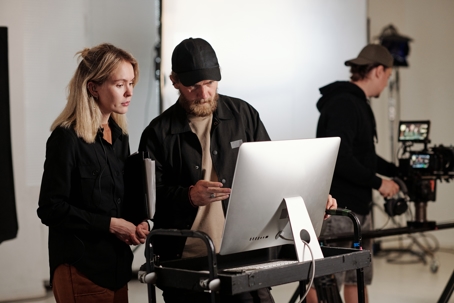The entertainment industry has long been a space where power dynamics are easily abused. For decades, stories of sexual harassment have surfaced, often met with silence, settlements, or career-ending retaliation. But things are changing. More survivors are coming forward, and the legal system is beginning to catch up.
If you’ve experienced sexual harassment while working in film, television, music, streaming, or live entertainment, it’s important to know your rights and what steps you can take.
What Is Considered Sexual Harassment in Entertainment?
Sexual harassment is not limited to a corporate office setting. In the entertainment industry, it can happen on set, backstage, in rehearsals, at auditions, or even during promotional events.
It can take many forms, including:
Unwanted sexual advances or propositions from producers, directors, or others in power
Pressure to engage in sexual activity in exchange for roles, contracts, or promotions
Inappropriate comments, touching, or gestures
Retaliation or blacklisting for rejecting advances or reporting misconduct
What makes harassment in entertainment especially dangerous is the imbalance of power—when speaking out could risk your future in the industry. If you’re unsure whether your experience qualifies as sexual harassment, visit our Sexual Harassment page for more details.
Who Can Be Held Responsible?
In many cases, it’s not just the harasser who may be held legally accountable. Production companies, agencies, studios, or streaming platforms may also be liable if they:
Knew about the harassment and failed to act
Created or allowed a hostile work environment
Retaliated against you for reporting misconduct
Legal responsibility can extend beyond the individual to the organizations that enabled or protected the behavior.
Why Survivors Stay Silent—and Why That’s Changing
There are many valid reasons why people in entertainment stay silent after experiencing harassment. Fear of losing work, breaking NDAs, being labeled “difficult,” or facing public scrutiny all contribute to the silence.
But survivors are reclaiming their voices. Thanks to the #MeToo movement and greater public awareness, legal support is stronger and more survivor-focused than ever.
At Holtz Matthews, we understand the nuances of harassment in high-profile and high-pressure industries. We’re here to help you navigate your options with discretion and strength.
What to Do If You’ve Experienced Sexual Harassment
If you believe you’ve experienced sexual harassment in the entertainment industry, here are a few immediate steps to consider:
Document Everything
Save messages, emails, call logs, or any evidence that supports your account. Write down your experiences with dates, names, and details.Identify Witnesses or Patterns
In many cases, harassers target multiple individuals. If others have witnessed or experienced similar behavior, it may help strengthen your case.Seek Legal Advice
Before signing any NDA or accepting a settlement, consult an attorney who has experience in entertainment industry cases. You deserve to understand all your options.Know Your Rights
Harassment is not just wrong—it’s illegal. You may be entitled to compensation or other legal remedies, and more importantly, your voice can help prevent future abuse.
We’re Here to Support You
At Holtz Matthews, we represent survivors of sexual harassment across Los Angeles, Las Vegas, and the broader entertainment industry. Whether you’re an actor, assistant, crew member, or content creator, your experience matters—and we’re ready to fight for you.
Contact us today to schedule a confidential consultation.

